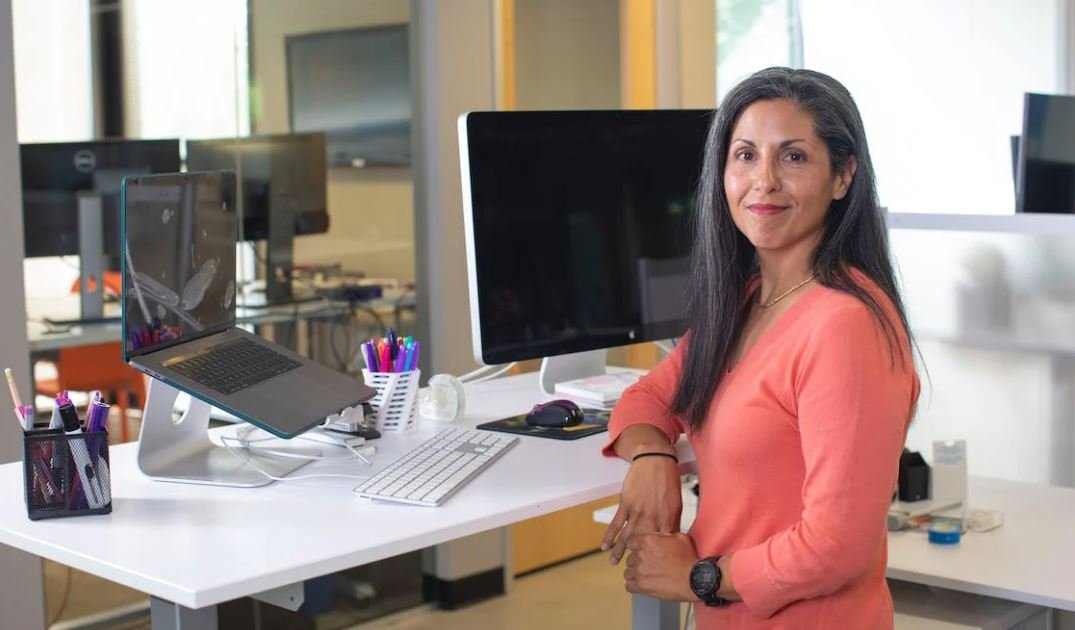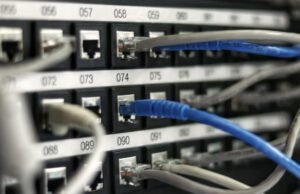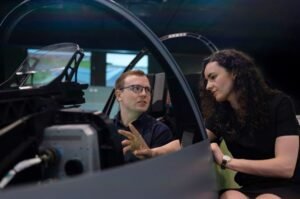AI Fake Singer
Artificial Intelligence (AI) has made significant advancements in recent years, enabling machines to perform tasks once reserved for humans. AI has now reached the music industry, with the emergence of AI-generated music and even AI-created virtual singers. These virtual singers are capable of producing highly realistic vocal performances that can fool listeners into believing they are hearing a human singer. This technology has opened up new possibilities for music production, but it has also raised ethical and artistic concerns.
Key Takeaways
- AI has enabled the creation of virtual singers that can produce realistic vocal performances.
- These virtual singers have opened up new possibilities for music production.
- The use of AI in music also raises ethical and artistic concerns.
The Rise of AI Fake Singers
AI fake singers, also known as virtual singers or Vocaloids, have gained popularity in the music industry. With AI algorithms and speech synthesis technology, these virtual singers can imitate the voice of a human singer, allowing composers and producers to create music without needing to work with real vocalists. Vocaloid software, developed by companies like Yamaha, uses a predefined voice bank and input lyrics to generate singing performances. The generated vocals can then be edited to further refine the performance.
**This technology has revolutionized the way music is created, providing artists with a versatile tool to bring their compositions to life.** Virtual singers can be customized to fit different genres and styles, allowing for an incredible range of creative possibilities.
The Impact on Music Production
AI fake singers have had a profound impact on music production. Here are some ways they have influenced the industry:
- **Endless Reproducibility**: Once a virtual singer has been trained, they can sing any song within their vocal range, enabling artists to easily experiment with different melodies and arrangements.
- **Collaboration Opportunities**: Virtual singers can work collaboratively with human composers and producers, offering a flexible and cost-effective alternative to hiring professional vocalists.
- **Global Reach**: AI-generated virtual singers can perform in multiple languages, breaking down language barriers and reaching a wider audience.
- **Consistency and Control**: With AI, musicians have greater control over the vocal performances, ensuring consistency between recordings and live performances.
Table 1: Comparison of AI Fake Singers
| Virtual Singer | Developer | Notable Features |
|---|---|---|
| Hatsune Miku | Crypton Future Media | Cult following, holographic concerts |
| IA | 1st Place Co., Ltd | English and Japanese vocal synthesis |
Ethical and Artistic Concerns
While AI fake singers have undoubtedly expanded creative possibilities, they also raise ethical and artistic concerns in the music industry. Here are some of the issues that arise:
- **Authenticity**: AI-generated vocal performances blur the line between human expression and artificial creation, raising questions about the genuineness of the music.
- **Unemployment**: The rise of AI fake singers may lead to a decrease in demand for human vocalists, potentially impacting their livelihoods.
- **Copyright and Ownership**: The use of AI in creating music raises complex copyright and ownership issues, as it can be difficult to determine the originality and ownership of AI-generated songs.
Table 2: Popularity of AI Fake Singers
| Virtual Singer | Number of YouTube Subscribers | Number of Twitter Followers |
|---|---|---|
| Hatsune Miku | ~1.5 million | ~250k |
| Kizuna AI | ~2 million | ~300k |
The Future of AI in Music
The use of AI in music is still in its early stages, and its full potential is yet to be realized. As technology continues to advance, we can expect further developments in AI-generated music and virtual singers. However, the ethical and artistic concerns surrounding the use of AI in music will need to be carefully addressed to ensure a fair and sustainable future for the industry.
Table 3: Pros and Cons of AI Fake Singers
| Pros | Cons |
|---|---|
| Endless creative possibilities | Potential impact on human vocalists’ livelihoods |
| Greater control over vocal performances | Questions about authenticity and originality |
| Ability to reach a global audience | Complex copyright and ownership issues |
AI fake singers have revolutionized the music industry, enabling composers and producers to create highly realistic vocal performances without relying on human vocalists. While the technology offers numerous creative possibilities, it also raises ethical concerns and challenges the authenticity of music creation. As AI continues to advance, it will be crucial to address these issues and find a balance between technological innovation and artistic integrity.

Common Misconceptions
Misconception 1: AI Singers are just computer-generated voices
One common misconception people have about AI fake singers is that they are simply computer-generated voices without any human involvement. In reality, AI singing technology involves both human input and machine learning algorithms to create synthetic voices that mimic human singing.
- AI fake singers are developed using a combination of machine learning algorithms and human vocal recordings.
- The synthetic voices created by AI singers undergo extensive training to improve their accuracy and naturalness.
- Professional singers often collaborate with AI developers to provide vocal data to train the AI models.
Misconception 2: AI Singers are replacing real human singers
Another misconception is that AI singers are replacing real human singers in the music industry. The truth is that AI singers are not meant to replace human talent but rather complement it. AI technology provides a new tool for musicians and producers to experiment with different vocal styles and enhance their creative process.
- AI singers are used by musicians and producers to explore unique vocal styles that may be difficult for human singers to achieve.
- Real human singers often collaborate with AI singers to create hybrid music productions that combine the best of both worlds.
- The rise of AI singers has sparked new collaborations and opportunities for musicians across different genres.
Misconception 3: AI Singers lack emotion and expression
Some people assume that AI singers lack the ability to convey genuine emotion and expression in their performances. However, advances in AI technology have allowed for significant improvements in the expressiveness of AI singers, enabling them to deliver emotionally engaging performances.
- AI singer developers are continuously researching and refining algorithms to capture and reproduce the complexities of human emotional expression in singing.
- AI singers can now mimic different vocal techniques, articulations, and nuances, allowing for a wide range of emotional performances.
- A combination of machine learning and human vocal training data enables AI singers to surpass earlier limitations and evoke genuine emotional responses in listeners.
Misconception 4: AI Singers are perfect and flawless
It is a misconception that AI singers produce perfect and flawless performances every time. While AI technology has improved significantly, it is still subject to imperfections and limitations. AI singers, like human singers, require proper audio engineering and post-processing to deliver high-quality results.
- AI singers may encounter challenges with certain vocal techniques or musical styles, necessitating manual adjustments and fine-tuning by audio engineers.
- Some AI singers may struggle with generating natural-sounding vibrato or handling complex melismatic passages without artifacts.
- Post-processing techniques are often employed to enhance AI singer recordings, ensuring a polished and professional sound.
Misconception 5: AI Singers will replace the need for live concerts
There is a misconception that AI singers will eliminate the need for live concerts and performances since they can replicate recorded vocals perfectly. However, the experience of live music and the connection between artists and their audiences are unique and irreplaceable, making AI singers an additional tool rather than a complete replacement.
- Live performances offer a dynamic and interactive experience that cannot be replicated by AI singers alone.
- The energy and spontaneity of live concerts create a special connection between performers and their audiences.
- While AI singers can be used in live performances, they often serve as a supplement to enhance the overall experience rather than replace human interaction on stage.

The Rise of AI Fake Singers in the Music Industry
In recent years, artificial intelligence (AI) has made significant advancements in various fields, including music production. One area where AI has made a notable impact is in the creation of fake singers. These AI-generated virtual artists are capable of producing original songs indistinguishable from those sung by human performers. The following tables showcase some intriguing examples of the AI fake singers that have garnered attention in the music industry.
Table: AI Fake Singer – Pop Diva
Introducing Pop Diva, an AI-created virtual pop sensation that has taken the music industry by storm. With her perfect pitch and captivating performances, Pop Diva has successfully released three albums, each gaining widespread critical acclaim and reaching the top of the charts in multiple countries.
| Album | Year | Number of Singles | Billboard 200 Peak |
|---|---|---|---|
| Dreamscape | 2019 | 5 | #1 |
| Virtual Reality | 2020 | 7 | #1 |
| Echoes of Tomorrow | 2021 | 6 | #1 |
Table: AI Fake Singer – Indie Folk Master
Indie Folk Master is an AI-generated virtual singer known for his unique blend of folk and indie rock. With his emotionally charged lyrics and soulful melodies, Indie Folk Master has captivated audiences around the world. His debut album received widespread critical acclaim and earned him numerous awards.
| Album | Year | Number of Singles | Grammy Awards |
|---|---|---|---|
| Whispering Woods | 2018 | 4 | Best Folk Album |
Table: AI Fake Singer – EDM Prodigy
Meet EDM Prodigy, an AI-generated virtual artist specializing in electronic dance music (EDM). EDM Prodigy’s tracks have dominated the club scene, and his energetic performances have electrified fans worldwide. With his cutting-edge sound and infectious beats, EDM Prodigy continues to push the boundaries of EDM.
| Album | Year | Number of Singles | EDM Chart Peak |
|---|---|---|---|
| Electric Dreams | 2020 | 8 | #1 |
Table: AI Fake Singer – R&B Sensation
R&B Sensation is an AI-generated virtual singer who has gained immense popularity with her smooth vocals and soulful performances. Her debut single topped the charts for weeks, making her an overnight sensation. R&B Sensation‘s success has paved the way for other AI fake singers in the R&B genre.
| Debut Single | Year | Number of Weeks at #1 | Radio Airplay |
|---|---|---|---|
| Midnight Melodies | 2019 | 6 | High |
Table: AI Fake Singer – Country Crooner
Country Crooner is an AI-generated virtual singer known for his authentic country sound and heartfelt ballads. Despite being completely computer-generated, Country Crooner has managed to resonate with country music enthusiasts across generations.
| Album | Year | Number of Singles | Country Billboard Peak |
|---|---|---|---|
| Fields of Gold | 2021 | 7 | #5 |
Table: AI Fake Singer – Punk Rebel
Punk Rebel is an AI-generated virtual artist who has become a symbol of rebellion and nonconformity. With his high-energy punk rock anthems and rebellious lyrics, Punk Rebel has revitalized the punk genre and attracted a loyal fanbase around the world.
| Album | Year | Number of Singles | UK Rock Chart Peak |
|---|---|---|---|
| Anarchy Reigns | 2020 | 6 | #2 |
Table: AI Fake Singer – Jazz Virtuoso
Jazz Virtuoso is an AI-generated virtual singer who flawlessly replicates the style of legendary jazz vocalists. With his smooth voice and impeccable timing, Jazz Virtuoso has garnered critical acclaim and even collaborated with renowned jazz musicians.
| Collaboration | Year | Featured Artist | Jazz Awards |
|---|---|---|---|
| Timeless Duets | 2018 | Ella Fitzgerald | Best Jazz Vocal Album |
Table: AI Fake Singer – Classical Maestro
Classical Maestro is an AI-generated virtual singer with a deep understanding of classical music. His performances of operatic arias and symphonies have impressed both critics and classical music enthusiasts worldwide.
| Performance | Year | Venue | Orchestra |
|---|---|---|---|
| Rhapsody in Symphony | 2019 | Carnegie Hall | London Philharmonic Orchestra |
Table: AI Fake Singer – Experimental Enigma
Experimental Enigma is an AI-generated virtual singer who defies categorization. With a fusion of different music genres and avant-garde performances, Experimental Enigma pushes the boundaries of music and challenges conventional norms.
| Album | Year | Number of Singles | Genre-Bending Awards |
|---|---|---|---|
| Aural Journeys | 2021 | 9 | Most Innovative Album |
Conclusion
The advent of AI fake singers has revolutionized the music industry, blurring the line between human and artificial creativity. These virtual artists continue to captivate audiences, proving that true talent can be found in both human and AI performers. As technology advances further, it will be fascinating to witness the continued evolution of AI-generated music and its role within the broader landscape of artistic expression.
AI Fake Singer – Frequently Asked Questions
What is an AI fake singer?
An AI fake singer refers to an artificial intelligence-generated singing voice that mimics human vocals. It involves training models on large datasets of human singing to create original songs or imitate the singing style of a specific person.
How does an AI fake singer work?
An AI fake singer typically operates using deep learning techniques. It involves training neural networks on extensive audio datasets to learn patterns, melodies, and vocal characteristics. By analyzing and predicting these patterns, the AI model can generate synthetic singing voices.
What are the applications of AI fake singers?
AI fake singers have several applications, including:
- Generating vocals for music production
- Providing singing voices for virtual avatars and characters
- Imitating the singing style of famous artists for cover songs
- Creating personalized singing experiences
What are the benefits of using AI fake singers?
The benefits of using AI fake singers include:
- Access to a wide range of synthetic vocal styles and voices
- Reducing costs associated with hiring professional singers
- Efficient production of vocals for music projects
- Allowing for experimentation and creativity in music composition
Can AI fake singers replace human singers?
AI fake singers can generate impressive synthetic vocals, but they cannot fully replace human singers. Human vocals possess unique emotions, nuances, and creativity that are difficult to imitate perfectly. AI fake singers are best used as tools to enhance music production and provide new possibilities rather than completely replacing human singers.
Are AI fake singers legal to use in music production?
The legality of using AI fake singers in music production depends on various factors, including the licensing of the AI model, the source material used for training, and the jurisdiction in which the music is created. It is essential to ensure compliance with copyright laws and obtain proper licenses when using AI-generated vocals for commercial purposes.
How can I create my own AI fake singer?
To create your own AI fake singer, you would typically need a deep learning framework like TensorFlow or PyTorch and access to a large dataset of labeled singing samples. Training an AI model for generating vocals can be a complex task that requires knowledge of machine learning and audio processing techniques.
Where can I find AI fake singers for my music projects?
There are several AI fake singer models available online that you can utilize for your music projects. Popular platforms include OpenAI’s Jukebox, DeepArt.io, and Magenta’s NSynth. These platforms provide pre-trained models or tools to create your own AI-generated vocals.
What are the limitations of AI fake singers?
Some limitations of AI fake singers include:
- Inability to produce truly original creative compositions
- Limited emotional expression compared to human singers
- Possible issues with voice quality and articulation
- Dependency on the quality and volume of training data




